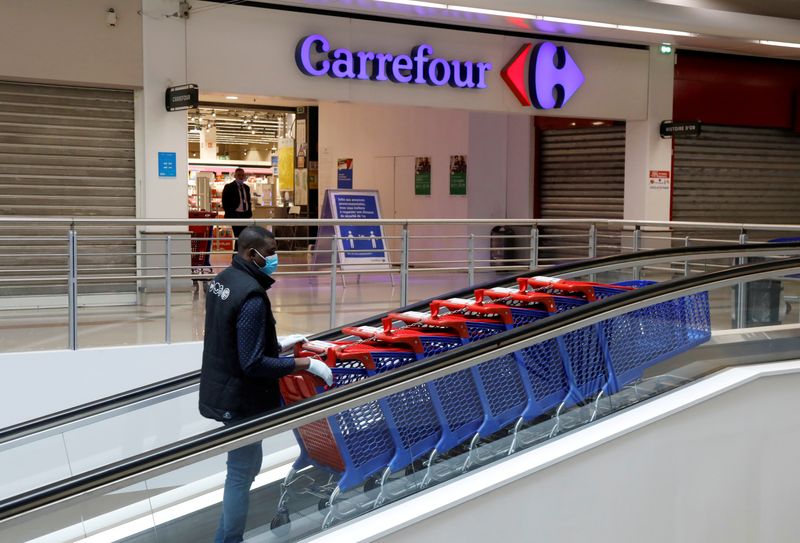PARIS (Reuters) - In parts of the Muslim world, calls were trending on social media over the weekend for consumers to boycott French goods in protest at France displaying caricatures of the Prophet Mohammad which Muslims view as blasphemous.
The impact of the boycott was difficult to ascertain, with only isolated reports of sales of French goods being affected.
Here are some of the French firms and sectors with exposure to Muslim-majority countries. There is no indication that any of them have so far been affected, unless otherwise stated.
GRAIN
France is a major global exporter of grain, and some of its biggest markets are in Muslim-majority countries. Algeria is France's tenth largest export market for agricultural products, according to French farm ministry data, with exports worth around 1.4 billion euros in 2019. Morocco, one of the Muslim countries that condemned the publication of the cartoons of the Prophet, was France’s 17th largest agricultural product export market last year, with exports worth 700 million euros.
SUPERMARKETS
One target of the calls for boycotts in Saudi Arabia was the Carrefour (PA:CARR) supermarket chain. A campaign for consumers to stay away from its stores was trending on Saudi social media over the weekend.
The French retailer operates in many parts of the Middle East and south Asia via a franchising arrangement with partners. One partner holds the exclusive rights to the Carrefour franchise in countries including Pakistan, Lebanon and Bahrain. Another partner holds the Carrefour franchise rights for Morocco.
Reuters journalists in the Saudi capital Riyadh visited two Carrefour shops, which appeared to be as busy as normal.
ENERGY
French energy giant Total is present in many Muslim majority countries. In Pakistan, Bangladesh, and Turkey, countries where the backlash against France over the cartoons has been most vociferous, Total is mainly focussed on selling its petrochemical and petroleum products. In Saudi Arabia, as well as in several other Gulf states, Total has investments in exploration and production, and in some cases refining.
FASHION AND LUXURY
In a store Reuters visited in Kuwait city on Sunday, cosmetic and skincare products produced by L'Oreal had been cleared from the shelves. The store was one of around 70 outlets tied to a cooperative union that decided to stop selling French products.
But L'Oreal's exposure -- along with other players in the French fashion sector -- is limited.
Combined with Africa, the Middle East is the smallest contributor to L'Oreal's earnings, representing just over 2% of earnings.
For major French fashion labels, the Middle East represents a small portion of sales compared to the United States, Asia or Europe. Big brands like LVMH-owned Louis Vuitton or privately-owned Chanel have stores across the Middle East, including in Saudi Arabia and Dubai. But wealthy Middle Eastern clients tend to purchase luxury goods while travelling away from home. LVMH, which also owns Christian Dior, does not break out how much the Middle East contributes to earnings.
DEFENCE AND AEROSPACE

France is one of the world's leading arms exporters. Thales sells weapons, aeronautics technology and public transport systems to a number of Muslim-majority countries. Clients include Saudi Arabia, the United Arab Emirates, Turkey, and Qatar, according to the company's website. Egypt and Qatar are among countries that have ordered the Rafale military jet from Dassault, which also views the region as a big market for its private jets.